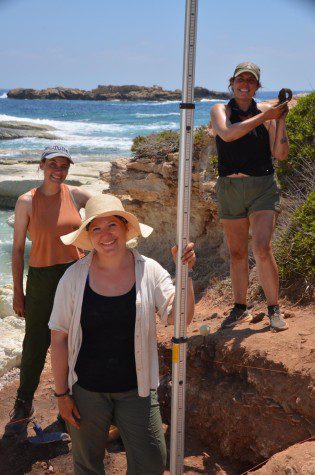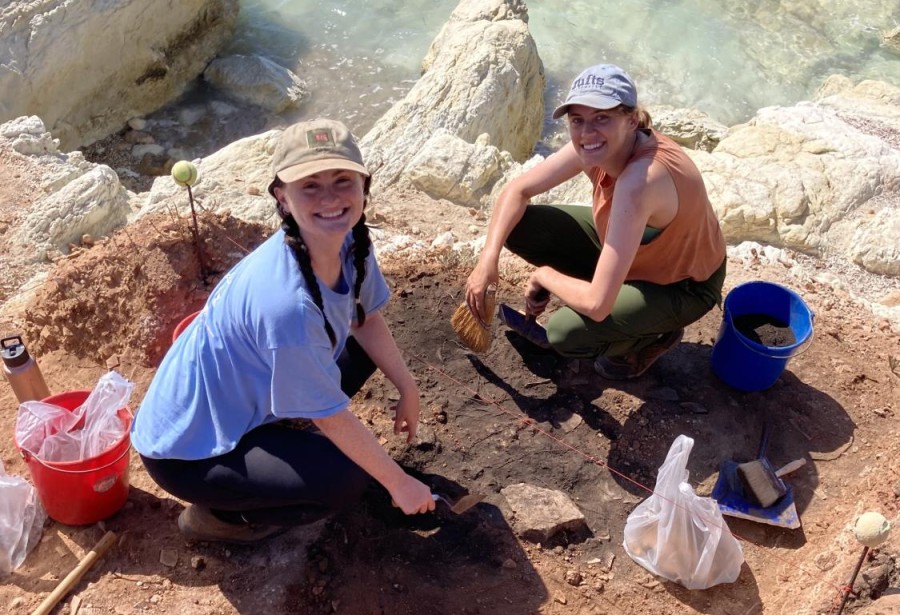NYU team finds Roman artifacts during Cyprus excavation
A group of students and faculty from NYU’s Department of Classics recently completed a three-month study of ancient Roman artifacts in Cyprus.
Nellie Carobene and Meredith Millar at the Maniki Harbor excavations in Cyprus. (Courtesy of Joan Breton Conelly)
November 30, 2022
A team of NYU students, led by a professor in NYU’s Department of Classics, completed a three-month excavation on Yeronisos Island, a small island near the west coast of Cyprus, this month. The project, led by Joan Breton Conelly, uncovered more information about naval trade in the later centuries of the Roman empire.
The group discovered Roman containers used to ship wine along the coast of Maniki — a harbor that once housed ancient settlements — and evidence of pilgrimages between South Palestine and Cape Drepanum, which is located on mainland Cyprus. The excavation was part of the Department of Classics’ Yeronisos Island Excavations and Field School, a decades-old program that provides undergraduate and graduate students with the opportunity to participate in archaeological field work on the island.
“Our motto on the NYU Yeronisos Island Excavation Field School is ‘Learn by Doing,’” Conelly told WSN. “We endeavor to match each student with a senior staff member mentor who works in a field of special interest to the student. Our international, multidisciplinary team of experts who join us in the field each season are keen to work with students aspiring to enter their disciplines.”
The team used diver propulsion vehicles — diving equipment that is used to increase the distance a diver can reach while underwater — to explore deeper areas than they had been able to in the past. They covered around 12,200 meters of coastline and spanned depths of up to 30 meters to find ancient stone and metal anchors.
David Levene, the Classics department chair, said that students involved in the Yeronisos excavation are trained in archaeological principles and practices. He noted that the department financially supports several students working on the expedition.
Stephanie Lynn Savage, a Ph.D. candidate in the Classics department who took part in the excavation project, said she supervised the excavation efforts of undergraduate students, adding that she had previously been a part of teams in Greece and in the southeastern United States.

The team is now looking to broaden its underwater research program by using advanced technology to look at the island’s geographical history.
“The experience that sticks with me while reflecting on my time in Cyprus was the intense teamwork required to execute an endeavor such as an archaeological excavation,” Savage said. “This past season, we were extremely fortunate to work with students and scholars who were not only brilliant, but a pure joy in the field. You do not always get the chance to excavate with your dear friends, but when you do, it makes the work that much sweeter.”
Contact Stella Zhong at [email protected].
























































































































































